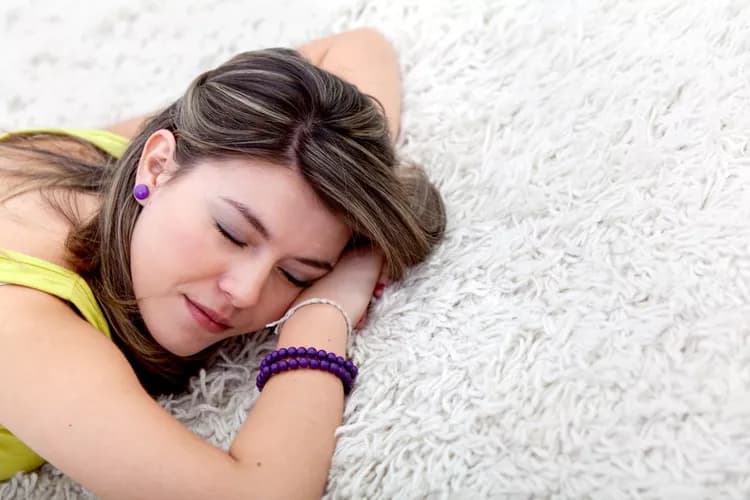We are all aware that the quality and quantity of sleep we get each night has a substantial impact on our wakefulness, alertness, and mood throughout the day. It is true that when we are well rested, we are able to think more clearly and effectively learn new concepts. This concept has led scientists to further investigate the importance of sleep and its influence on memory. Researchers have long fostered studies on the development and hindrance of memory formation and recall in response to normal and disruptive sleep.
Memory and Sleep:
According to the National Sleep Foundation, normal sleep allows us to be in the right state of mind to absorb, process, and retain information over the long term. Research has shown that sleep initiates changes in the brain that solidify memories, which reinforces connections between brain cells and relocates information from one region in the brain to another. It is hypothesized that when we get proper sleep, novel skills and memories acquired are transferred to more effective and permanent brain regions, leading to higher efficiency the next day.
Procedural Memory Consolidation and Sleep:
Research at Harvard Medical School in 2005 consolidated several studies that showed strong support for the existence of sleep-dependent memory consolidation. The greatest evidence that memory consolidation is dependent upon sleep is that after encoding an experience, a series of cellular and molecular level alterations develop over time, without awareness, that stabilize and augment our initial memory representation and convert it to long-lasting and integrated memory. Support from several studies suggests that procedural memory, such as knowing how to ride a bike, is inherently dependent upon sleep. These memories are naturally used without conscious recollection. Study participants were given visual discrimination tasks and motor tasks that only showed improvement and increases in accuracy after post-training sleep.
Declarative Memory Consolidation and Sleep:
Declarative memories can be called to mind. They consist of episodic memories, such as a memory of a specific event, and semantic memories, which contain general information. Research at the University of New York published a study in 2006 that documented evidence that declarative memory was dependent upon non-REM sleep, or non-rapid eye movement sleep. Subjects completed a paired associate declarative memory task, in which they were given 40 pairs or words and were later asked to complete the pairing. Those who took an afternoon nap and did not reach REM sleep after viewing the word pairings showed greater improvement and accuracy than for those who remained awake. This evidence suggests that declarative memory formations are dependent on sleep and further proposes that daytime napping is beneficial for declarative memory consolidation.
Memory Consolidation and Sleep Disorders:
In 2013, Italian researchers reviewed literatures on various sleep disorders and their impact on memory consolidation. The previous studies strengthened the growing hypothesis that sleep consolidation was impaired in patients with chronic sleep disorders as a consequence of their altered sleep patterns. Evidence was compiled that suggested sleep-dependent consolidation was largely impaired for verbal and visual declarative information for primary insomnia patients, verbal declarative information was impaired for sleep apnea patients, and visual procedural skills were obstructed in narcolepsy patients. These concrete findings demonstrate the necessity for proper sleep and treatment for patients with chronic sleep disorders.
Talk to an expert if you feel that you are not getting adequate sleep each night, as it is apparent that this could affect your ability to retain short-term memory and create long-term memories. Sleeping disorders can have a substantial impact on this process and it is essential that these conditions are diagnosed properly. Make sure to maintain proper sleep hygiene and get the proper amount of sleep each night. The National Sleep Foundation recognizes individual differences in sleep need, but generally recommends that adults should aim for 7 to 9 hours per night.
Emerging research on the neuronal connections and formations in the brain is shedding light on the process in which we are able to enhance our memories as we sleep. Some scientists are even speculating the ability of our brains to learn new information as we sleep, that if proven, will shake the foundation of neuroscience. In light of all these discoveries, it is now even more necessary to get those Z’s.
References:
Stickgold R. Sleep-dependent memory consolidation. Nature. 2005;437:1272-8.
Improve Your Memory with a Good Night’s Sleep [Internet]. National Sleep Foundation [cited 2015 Jan 23]. Available from: http://sleepfoundation.org/sleep-news/improve-your-memory-good-nights-sleep
Cipolli C, Mazzetti M, Plazzi G. Sleep-dependent memory consolidation in patients with sleep disorders. Sleep Medicine Reviews. 2013;17(2):91-103.
Tucker MA, Hirota Y, Wamsley EJ, Lau H, Chaklader A, Fishbein W. A daytime nap containing soley non-REM sleep enhances declarative but not procedural memory. Neurobiology of Learning and Memory. 2006;86(2):241-7.
How Much Sleep Do We Really Need? [Internet]. National Sleep Foundation [cited 2015 Jan 23]. Available from: http://sleepfoundation.org/how-sleep-works/how-much-sleep-do-we-really-need
Helpful Peer-Reviewed Medical Articles:
Diekelmann, S., & Born, J. (2010). The memory function of sleep. Nature Reviews Neuroscience, 11(2), 114-126.
Maquet, P. (2001). The role of sleep in learning and memory. Science, 294(5544), 1048-1052.
Walker, M. P., & Stickgold, R. (2006). Sleep, memory, and plasticity. Annu. Rev. Psychol., 57, 139-166.
Graves, L., Pack, A., & Abel, T. (2001). Sleep and memory: a molecular perspective. Trends in neurosciences, 24(4), 237-243.
Related Articles
Test Your Knowledge
Asked by users
Related Centers
Related Specialties
Related Physicians
Related Procedures
Related Resources
Join DoveHubs
and connect with fellow professionals


0 Comments
Please log in to post a comment.